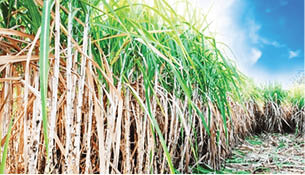I earn N5m annually from sugarcane – Farmer
Alhaji Magaji Alhaji Jalo, a farmer from Sabindo village in the Auwaru district of Akko Local Government Area of Gombe State, said he spends approximately N2.5 million on clearing, planting, and harvesting of sugarcane and that at the end of the farming season, he earns up to N5 million. Alhaji Magaji told our correspondent, who […]

16weeklypage322
Alhaji Magaji Alhaji Jalo, a farmer from Sabindo village in the Auwaru district of Akko Local Government Area of Gombe State, said he spends approximately N2.5 million on clearing, planting, and harvesting of sugarcane and that at the end of the farming season, he earns up to N5 million.
Alhaji Magaji told our correspondent, who was at Sabindo village that when sugarcane first appeared in Gombe markets, it came from his village because they are the leading sugarcane farmers in the state.
He said everyone in the village is a farmer, focusing primarily on sugarcane and maize.
The farmer said he had about 50 hectares of sugarcane farm, spending up to N2 million on cultivation and earning up to N5 million from sales.
Harnessing biogas power for Nigeria’s green energy revolution
Why female farmers continue to struggle
Farming, according to Alhaji Magaji, is a tradition passed down from their ancestors and is their primary means of livelihood.
He said with the money they earn from farming; they have been able to buy cars, adding that no farmer in the community is without a car.
He added that farming also enabled him to raise livestock and provide food for his family.
He, however, said despite their village’s prominence in farming, they have never received any form of support from the government whether in the form of fertilizers or other inputs.
Alhaji Magaji added that in addition to the lack of farming support, the village lacks basic amenities such as solar-powered electricity, boreholes and hospitals.
He also mentioned that for their dry-season sugarcane farming, they rely on water from the ground. However, he said this water source dries up quickly, forcing the villagers to dig boreholes.
Alhaji Magaji used the opportunity to call on the government to support them to increase their farming capacity.
He said such assistance could be in form of affordable fertiliser, financial aid and irrigation facilities.
